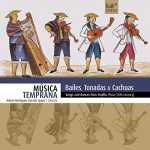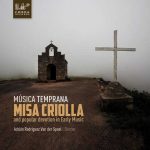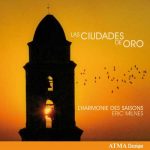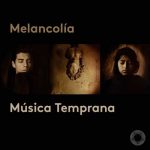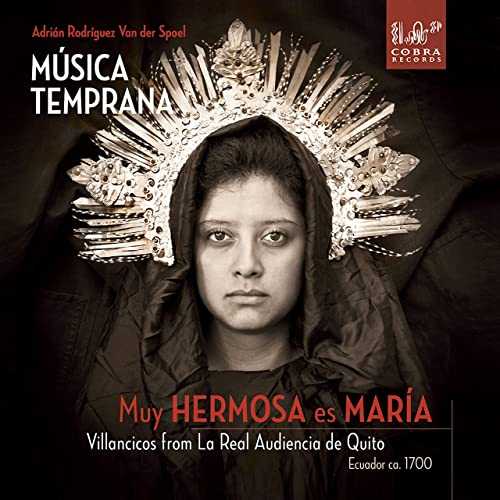
Orchestra: Música Temprana
Conductor: Adrián Rodriguez van der Spoel
Audio CD
Number of Discs: 1
Format: FLAC (tracks)
Label: Cobra
Size: 1.72 GB
Recovery: +3%
Scan: yes
01. Blasco: La Chacona Me Piden
02. Vamos al Lugar Amor
03. Ese Viril Con Pan
04. Murcia: Cumbées
05. Fuentes Si Nacéis
06. Celebre la Tierra
07. Oigan Que Da
08. Murcia: Zarangilleja
09. Blasco: De uno en uno vayan entrando
10. Cabanilles: Paseos 6° Tono
11. Muy Hermosa Es María
12. Sacro Sanctæ
13. Seguilda Marineros
14. Hortuño: Vamos todos a ver
15. Antonio José Estévez Aponte: Tonada de Ordeño
Everything within the historic centre of Quito, declared a World Heritage Site by UNESCO, with its 40 churches, 16 monasteries and more than 5000 heritage buildings points to a rich musical heritage. Sadly, many of the
musical archives have been pillaged or lost due to natural disasters, moves, carelessness and other factors.
The Ibarra works are religious vocal music with instrumental accompaniment. Except for the Latin prayer for seven voices Sacro Sanctae, the other compositions are villancicos in Spanish in the 17century Spanish tradition,
with an unmistakable element of popular music. The religious metaphors used stereotyped characters speaking slang, making it easier for listeners at the time to understand and identify them. In the period when these works were sung (around 1700), the number of voices, complexity and length of villancicos began to increase and they continued to draw on popular genres, just as they had since the beginning of the Renaissance.
Little is known about the work of women during the colonial period as the patriarchal society has always focused on male composers. The Ibarra manuscripts support the idea of a rich musical life in the convents. The prolific literary activity in Quito makes it very plausible to say that many of the texts preserved were sung and written by nuns as the parts found at Ibarra speakconstantly of women. It is a key element for Musica Temprana that through this CD the anonymous women of the convents receive the recognition they deserve.
Musica Temprana explores the repertoire from the Renaissance and Baroque periods, not only in Latin America, but also from sources of the Spanish Empire of that era. Through this Musica Temprana wishes to map the musical development in Latin America from the moment the first conquistadores set foot in the New World up to the coming of age of baroque music on Latin American soil itself. The ensemble’s repertoire is mostly the result of own research by the founder and conductor Adrian Rodriguez Van der Spoel. Since the first concert in 2001 the ensemble released seven CDs and organized performances in important festivals, such as the Festival Oude Muziek in Utrecht, Trigonale in Austria, the Early Music Festival in Stockholm, the Mozart Festival in Rovereto, Italy, and Musica Sacra in Maastricht.
